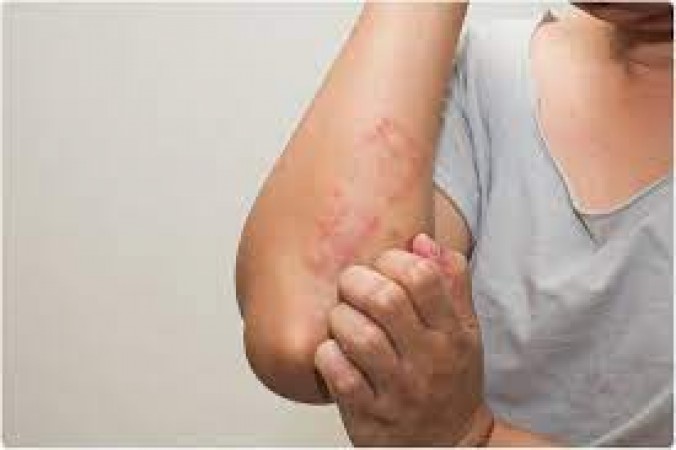
In the wake of the Omicron variant's surge, it's crucial to recognize that it brings more than just typical cold symptoms. Surprisingly, skin problems are emerging as potential indicators of Omicron infection. This revelation adds a new layer of complexity to understanding and identifying the virus. Let's delve into the unexpected connection between Omicron and skin issues.
The Omicron variant has been making headlines globally, with its highly transmissible nature and ability to bypass immunity. While respiratory symptoms are well-documented, recent reports suggest that it might manifest through skin-related concerns.
One of the alarming revelations is the occurrence of hives and rashes in individuals infected with the Omicron variant. Unlike traditional cold symptoms, these skin problems may act as silent messengers, signaling a potential infection.
Understanding the link between skin problems and Omicron requires delving into the intricate relationship between the skin and the immune system. The skin serves as a vital barrier, and any disruption can trigger immune responses, especially in the context of a viral invasion.
As the scientific community races to comprehend the full spectrum of Omicron's effects, dermatologists are reporting an increase in patients presenting with skin problems linked to the variant.
Individuals with pre-existing skin conditions, such as eczema, might experience heightened flare-ups when infected with Omicron. The virus seems to exploit the vulnerability of compromised skin barriers.
Reports also indicate the emergence of unique skin lesions associated with Omicron infection. Dermatologists are working tirelessly to characterize these lesions and determine their significance in the diagnostic landscape.
The significance of recognizing skin problems as potential indicators of Omicron lies in early detection. Dermatological clues might serve as an additional tool for identifying infections, especially in cases where traditional symptoms are absent.
As we navigate the evolving landscape of the pandemic, implementing comprehensive screening protocols that encompass dermatological assessments becomes imperative. This holistic approach enhances our ability to identify and isolate infected individuals promptly.
In the face of the Omicron variant, staying informed is our best defense. Keep abreast of emerging research and updates from health authorities to adapt preventive measures accordingly.
If you notice unusual skin problems or changes, seeking the advice of a dermatologist becomes crucial. They can provide insights into whether these issues could be indicative of an Omicron infection or other underlying conditions.
The intersection of Omicron and skin problems adds a layer of complexity to our understanding of the virus. Acknowledging the potential for dermatological manifestations expands our toolkit for early detection and containment. In these uncertain times, staying vigilant and informed is paramount.
PM Modi Opens World's Largest Meditation Centre in Varanasi, Hails Kashi's Progress
ISRO Prepares for a Dozen Major Missions in 2024: Here's What's Ahead
Goa Plans Grand Celebrations for 62nd Liberation Anniversary on December 19